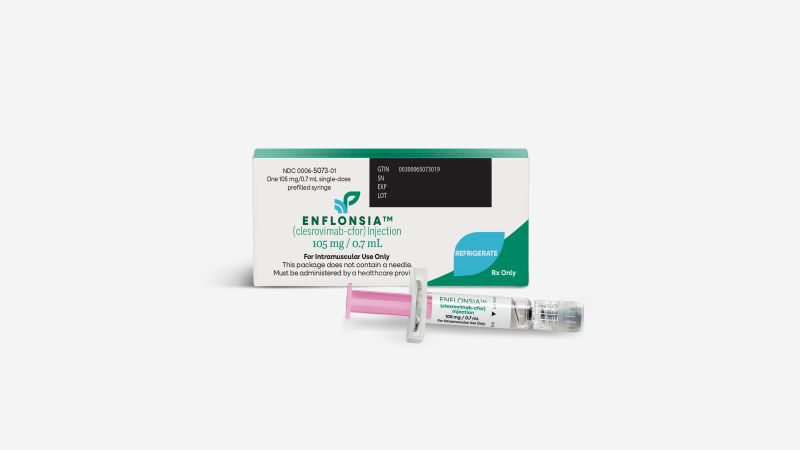A group of outside advisers to the US Centers for Disease Control and Prevention voted 5-2 to recommend the use of a new shot that can protect babies from respiratory syncytial virus, adding an additional tool against the most common cause of hospitalization in infants.
The vote was the first for thenewly assembled group, which was appointed by US Health and Human Services Secretary Robert F. Kennedy Jr. earlier this month after he dismissed the previous panel of 17 experts, claiming they had conflicts of interest. The split revealed tensions around the committee, some members of which have raised serious concerns from the public health community for their approach to vaccines and scientific evidence.
The shot, called clesrovimab and given thebrand name Enflonsia, is made by Merck and joins two other interventions already on the market to protect babies against severe disease from RSV, a common virus that can be especially dangerous for infants. One, like clesrovimab, is an antibody shot, while another is a vaccine given during pregnancy.
Data presented at the meeting showed the approved interventions were safe and dramatically reduced hospitalizations among babies from RSV in the last respiratory virus season.
“As a pediatrician, I mean, people need to understand what a spectacular accomplishment these results are,” ACIP member Dr. Cody Meissner, a professor of pediatrics at Dartmouth Geisel School of Medicine, said on Wednesday. They “will have an enormous influence on public health.”
The new drug was approved earlier this month by the US Food and Drug Administration, and the CDC committee’s recommendation was the next step in making it widely available for the coming RSV season, which typically begins in the fall. The recommendation now goes to the CDC director or potentially to Kennedy, as CDC nominee Dr. Susan Monarez is still awaiting Senate confirmation.
The vote came after Dr. Retsef Levi, a professor of operations management at the Massachusetts Institute of Technology Sloan School of Management and one of the new panelists, raised questions Thursday morning about whether there were safety signals that arose in clinical trials of the antibody shots that deserve further scrutiny. Representatives from both the FDA and Merck emphasized the safety of the product and the rigor of the clinical trials.
Meissner also expressed how thoroughly the CDC panel’s work group on RSV examined the data.
“We went through the details very, very carefully, and I appreciate Dr. [Levi’s] careful review of the records, but the workgroup is comfortable with the results from the different clesrovimab trials,” he said.
Levi voted against recommending the Merck shot, joined by Dr. Vicky Pebsworth, volunteer director of research and patient safety at the National Vaccine Information Center, a group that emphasizes risks around vaccines while downplaying their benefit.
The vote was closely watched as a first signal of how the controversial new committee would approach immunization policy. The Advisory Committee on Immunization Practices, or ACIP, is tremendously influential in how vaccines are used in the US, with implications for insurance coverage and state policies.
Kennedy’s upheaval of the group led organizations like the American Academy of Pediatrics this week to break with the ACIP over concerns about scientific integrity.
In a second vote on the Merck shot Thursday, the group voted unanimously that it should be included in the Vaccines for Children Program, which provides free vaccines to children whose families may not be able to afford them.
